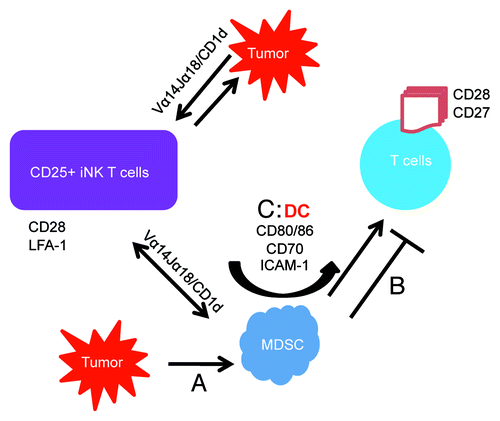Figures & data
Figure 1. Mechanisms by which CD25+ iNKT cells interact with MDSC and rescue T cells from suppression. Tumor-derived soluble factors increase MDSC (A) which in turn suppress anti-tumor T cell responses (B). Activated CD25+ NKT cells interact with CD1d on tumor cells and MDSC and demonstrate enhanced anti-tumor responses (C). This will result in MDSCs increasing expression of CD80/86, CD70, ICAM-1 thus effectively converting to a DC phenotype, which then interacts with CD28 and CD27 on activated T cells, thereby enhancing T cell anti-tumor responses.
